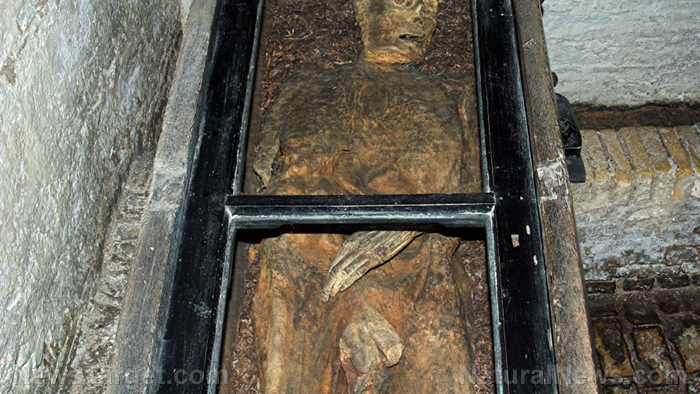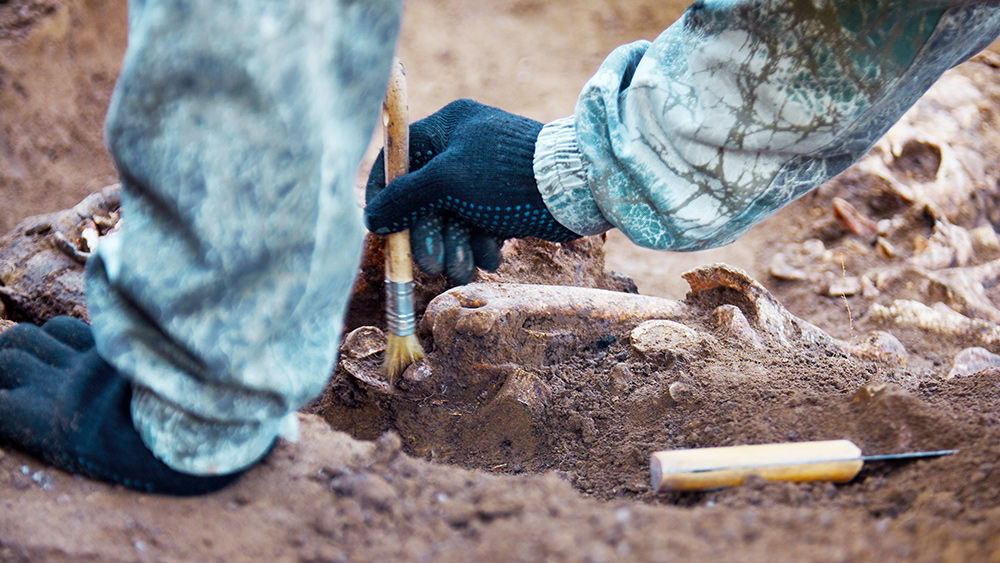VIRGIN BIRTH: American crocodile isolated in reptile park for 16 years lays clutch of eggs
06/14/2023 / By Laura Harris

Scientists have confirmed a virgin birth in crocodiles for the first time in history. A female American crocodile that had been isolated for 16 years in a reptile park was recently discovered to have laid a clutch of eggs.
The crocodile was placed in captivity at Parque Reptilandia in Costa Rica in 2002 at the age of two. She remained alone for the next 16 years – until January 2018, when she was discovered harboring a clutch of 14 eggs in her enclosure.
The virgin birth, scientifically referred to as “facultative parthenogenesis,” is a form of asexual reproduction and has been documented in several other species that typically reproduce sexually, such as in several species of sharks, lizards, snakes and birds – including the endangered California condor – mostly in captivity. But until now, it had never been recorded among the Crocodilia order, which includes crocodiles and alligators as well as caimans and gharials.
Facultative parthenogenesis, which usually results in female offspring, is thought to be triggered in several specific situations, including when there aren’t any males around. This is why these kinds of virgin births are often reported in captive animals that are typically kept in single-sex enclosures.
But the scientists analyzing the Costa Rican crocodile’s parthenogenesis noted that such virgin births may also be more common in species on the brink of extinction. (Related: Endangered reptile species being sold as pets could be in danger of extinction, warn scientists.)
Fetus in virgin birth crocodile egg genetically identical to its mother
In a study published in the journal Biology Letters, the team that investigated the crocodile’s facultative parthenogenesis found that seven of the 14 eggs that she laid were viable, so the zoo’s caretakers carefully incubated these eggs to ensure their survival. Unfortunately, all of the eggs were lost, prompting the caretakers to open the eggs about three months after they were discovered.
Six of the eggs were indiscernible. One egg contained a fully-formed, albeit non-viable, crocodile fetus. Genetic analysis revealed that the fetus was genetically identical to its mother, showing no evidence of input from any males.
This lack of genetic diversity means that individual animals born from parthenogenesis are unable to adapt to changing conditions and do not have the unique combination of genes from two parents that give them more chances of growing up to be healthy members of their species.
Lead researcher Warren Booth, a professor at Virginia Tech’s Department of Entomology, expressed his disappointment that the egg failed to hatch. However, he noted that offspring born through facultative parthenogenesis often exhibit abnormalities and struggle to survive. He and his team noted that further investigations need to be conducted into possible instances of facultative parthenogenesis in animals not in captivity.
Booth also said that the discovery of a virgin birth in a crocodile means facultative parthenogenesis has now been found in both birds and crocodilians, suggesting that both species groups may have a common evolutionary origin. Birds and crocodilians are the only living representatives of archosaurs, a group that also included dinosaurs and pterosaurs
“This new evidence offers tantalizing insights into the possible reproductive capabilities of extinct archosaurian relatives of crocodilians, notably the Pterosauria and Dinosauria,” the researchers wrote.
For more articles about weird facts in evolutionary history, check out WeirdScienceNews.com.
Watch this video to learn more about parthenogenesis in animals.
This video is from the channel Cory Barbee on Brighteon.com.
More related stories:
Study: 360M-year-old fossil from Ireland proves plants are capable of self-defense.
Giant flying insect discovered at Arkansas Walmart actually from the Jurassic era.
Experts think there are more GIGANTIC ANIMALS on Earth yet to be discovered.
Cold-blooded: Ron Gollobin never afraid to hunt snakes in swamps and crocodiles in the city.
Sources include:
Submit a correction >>
Tagged Under:
animals, breakthrough, crocodiles, discoveries, Ecology, environment, facultative parthenogenesis, parthenogenesis, real investigations, reptiles, research, virgin birth, weird science, wildlife
This article may contain statements that reflect the opinion of the author
RECENT NEWS & ARTICLES
COPYRIGHT © 2017 DISCOVERIES NEWS




















